Site Search
- resource provided by the Forum Network Knowledgebase.
Search Tip: Search with " " to find exact matches.
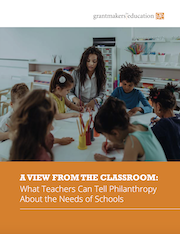
What can over a million teachers tell us about the needs of schools? This report digs into the data from 1.8 million teacher requests on the crowdfunding site DonorsChoose to tell the story from inside today's classrooms. We feel this data provides a roadmap for funders seeking to support students directly, but also for funders seeking broader reform of U.S. education policy and systems.
"Find people who will make you better."
—Michelle Obama
The day has arrived. It is my last day serving as President and CEO of the Council of New Jersey Grantmakers. In a few days, I will step over to your side of the aisle in my role leading the Champlin Foundation.
As I said at that beautiful and overwhelmingly wonderful farewell gathering last week, it has been an extraordinary gift and a profound privilege to serve in this role these past 13-plus years. And I feel very good about leaving this precious network in the hands of the exceptional team of Pat Foo, Theresa Jacks, and Craig Weinrich, along with the very capable interim leadership of Jon Shure and Connie Ludwin.
I’ve been struggling with what to say in my farewell message to all of you, the spectacular membership of the Council. First and foremost, I want to express my thanks and gratitude.
Thank you for the deep and wide education I’ve received these past 13 years because of all you do and want to do better. I’ve often said the best thing about this job is that I get to learn a little bit about a lot of different things because the membership has such fascinating and intensely important interests. I have gratitude for the amazing relationships I’ve been able to have with some of the smartest, kindest, most thoughtful, and creative people imaginable.
I also am enormously grateful for the opportunities I’ve been given.
- My year in Lead New Jersey that really laid so much of the groundwork I needed for CNJG’s programming and affinity groups.
- My two-month sabbatical that led directly to our Race, Racism and Ramifications for Philanthropy learning journey.
- The privilege to serve on the board and then chair our national network, the United Philanthropy Forum.
- And, the ability to help the Council make a meaningful difference in our field and our state through initiatives like Facing Our Future, the Disaster Philanthropy Playbook and our post-Sandy work, as well as creation of CNJG’s Guiding Beliefs and Principles.
Here is what is at the heart of all of it though: When a funder joins the Council it means they recognize they cannot do their best work in a vacuum or in isolation. They realize the need to find people who will make them better, just as I reference in Michelle Obama's quote above. They want to be smarter, work more thoughtfully, be truly effective. The Council is at its best when our members come together to learn, share ideas and strategies, collaborate, and be open to innovation. When I was given the gift of leading the Council, my mother would ask me to explain again what it was I would be doing. My response to her became my consistent little “elevator speech" for years to come. “My organization helps those that make grants be the best grantmakers they can be.”
As you all know well, working as a funder can get pretty heady. How does the joke go? Congratulations, you got a foundation job. You’ve now told your last bad joke. The power imbalance is so extreme.
What I’ve learned is that the best funders are the ones that really listen, not talk at their grantees about what they ought to be doing. Respect, faith, and appreciation for the people working in nonprofit charities is the hallmark of their approach. The best funders are the ones that show up as planned, on time for meetings and site visits, that don’t make an applicant jump through endless hoops for a grant -- especially a small grant.
The funders I’ve come to admire most are those that seek to understand a charity’s work and trust the expertise and wisdom of its executive leadership. These funders don’t micro-manage, mansplain, second-guess, or over burden. These funders recognize the power dynamic at play yet seek candid, colleague-to-colleague conversations and problem-solving with nonprofit leaders. They power-up nonprofit colleagues instead of powering over them.
These are just some of the marvelous lessons you’ve shared with me over the years, and I’m grateful to have them as I head into the role of a grantmaker for the largest private foundation in a small but mighty state.
With bountiful thanks and appreciation,
Nina Stack, President
Council of New Jersey Grantmakers
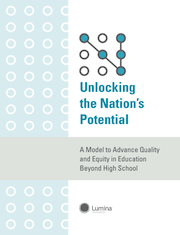
Two different CNJG members queried the CEO listserve on how/when/how to return to the office following the COVID-19 pandemic. CNJG staff compiled the answers from the responding members removing identifying information of the respondents.
Nonprofit Finance Fund's Annual Survey chronicles the challenges facing the nonprofit sector and calls out some of the targeted investments we can start to agree on as a society to salvage the investment we have collectively made in our social infrastructure. We believe that a coordinated intervention now will not only better prepare us for inevitable future economic crises; it can lead to a happier, healthier community for us all.
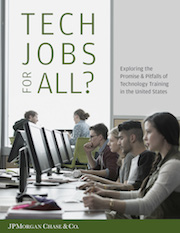
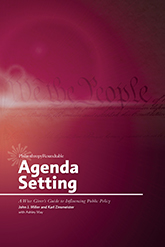
CNJG is pleased to offer this series of webinars to our members, hosted by our partners at the Center for Disaster Philanthropy.
With COVID-19 there seem to be more questions than answers, particularly for funders who want to respond effectively and efficiently. This series of seven webinars will bring expert panelists together to address some of the most pressing issues, including getting money out the door quickly, supporting vulnerable populations and managing other disasters in the midst of the pandemic.
Join the Center for Disaster Philanthropy for one or multiple webinars to gain a better perspective on the role of philanthropy in COVID-19 response and recovery.
Cost: Free for CNJG members and Nonmember Grantmakers
CNJG thanks the Center for Disaster Philanthropy for hosting this series.
Upcoming Webinars in this Series:
June 23: Managing a Global Response
July 14: How Funders Can Support Bereavement and Grief
Past Webinars in this Series:
April 14: Making Effective Rapid Response Grants
April 28: Managing Multiple Disasters Amid the Pandemic
May 12: Place-based Grantmakers and Investing in Local Communities
May 26: How Philanthropy Can Stand Up for Vulnerable Populations
The Grunin Foundation, in partnership with CNJG, invites you to join the next Monmouth & Ocean County funder roundtable. Join Monmouth and Ocean County funders for a virtual session to discuss the planning of a 2024 Spring PEEP (Party to Enhance Equity in Philanthropy) event. PEEP will be in-person casual gathering where nonprofit and philanthropy leaders get together to hang out and break down some of the pervasive power dynamics in our sector.
COST: Free for members and non-members
Please note: You do not need to be a member of CNJG to attend this event. However, this gathering is geared towards those who fund in Monmouth & Ocean Counties.
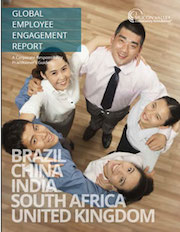
The Global Employee Engagement Report: A Corporate Responsibility Practitioner’s Guide is designed to provide practical information to companies looking to expand their employee engagement programs internationally. The report explores the employee engagement landscape in five countries: China, Brazil, India, South Africa and the United Kingdom. SVCF surveyed existing literature (global and country-specific) and conducted in-depth interviews with 65 corporate and nonprofit practitioners who have direct experience with employee engagement programs in the five countries studied. The report identifies cultural nuances, policies and trends that practitioners should be aware of as they design locally relevant programs.
Expanding Minds and Opportunities is a collection of articles presenting examples of effective practices, programs and partnerships demonstrating the power of afterschool and summer learning opportunities to support student success.
A CNJG member received an application from a school district, and wanted to know if others granted funds to a school district, and what other funders learned from granting to a district.
CNJG Member survey ranking which issues are most important to them.
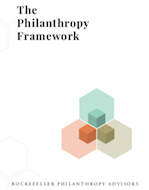
Rockefeller Philanthropy Advisors has released The Philanthropy Framework, a tool for analysis and planning to guide emerging and established philanthropies to better align resources for maximum impact. Created with input from leaders from more than 50 foundations worldwide, the tool seeks to address fundamental changes in philanthropy and the world such as generational shifts in attitudes, massive wealth creation, diversity of capital, new models for impact, and new operating environments among others.
It lays out three core elements for philanthropists to consider when determining how to maximize their impact:
- Charter, the organization’s scope, form of governance, and decision-making protocol
- Social Compact, its implicit or explicit agreement with society about the value it will create
- Operating Model, the approach to the resources, structures and systems needed to implement strategy.
CNJG is pleased to offer this series of webinars to our members, hosted by our partners at the Center for Disaster Philanthropy.
With COVID-19 there seem to be more questions than answers, particularly for funders who want to respond effectively and efficiently. This series of seven webinars will bring expert panelists together to address some of the most pressing issues, including getting money out the door quickly, supporting vulnerable populations and managing other disasters in the midst of the pandemic.
Join the Center for Disaster Philanthropy for one or multiple webinars to gain a better perspective on the role of philanthropy in COVID-19 response and recovery.
Cost: Free for CNJG members and Nonmember Grantmakers
CNJG thanks the Center for Disaster Philanthropy for hosting this series.
Past Webinars in this Series:
April 14: Making Effective Rapid Response Grants
April 28: Managing Multiple Disasters Amid the Pandemic
May 12: Place-based Grantmakers and Investing in Local Communities
May 26: How Philanthropy Can Stand Up for Vulnerable Populations
June 9: Grantmaking to Support Children and Older Adults
June 23: Managing a Global Response
